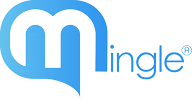Turn off your Garmin
I went out for a bike ride this week. It was my first ride in a couple of months and my first ride in over 5 years where I didn’t turn my Garmin on. For those of you not aware, a Garmin is a tracking device that connects to apps like Strava to measure and record all elements of your exercise. In the case of cycling this can be a myriad of things; time, speed, cadence, incline, power output and route just to name a few. It’s an amazing device and can bombard you with stats that on face value are really insightful.

I didn’t really intend to go out without my Garmin, I’d simply forgot to attach it to my bike. So how did I fare without the miniature box of tricks I’d spent so many years being so reliant on? I can wholeheartedly say, it was a revelation.
Enjoy the ride
Without my Garmin I simply focused on riding my bike.
I wasn’t constantly checking my average speed, my cadence or noting the KM’s as they ticked by. My mind wasn’t constantly comparing it to previous rides I’d done. “Was I going faster/ slower?” “What would my overall average speed be?” “How would that look to my friends when I published on Strava?” “Would they correctly conclude that I’m a lazy slob?”
Instead, I just enjoyed the pleasure of riding. Of being out in the sunshine and fresh air. I had no idea how far I’d ridden or how quickly I’d done it and I didn’t really care. I remembered why I started cycling in the first place, its enjoyable as well as being exercise.
Measure what is important
But how will you measure progress without your Garmin I hear you cry!? I guess that depends on what ‘progress’ you feel it is important to measure. In my case I want to cycle to lose weight, feel fitter and improve my mental health. None of those are measured by my Garmin. One is measured by my long-suffering bathroom scales and the other two are a product of how I FEEL.
The Garmin is quite irrelevant. I would guess that, unless you’re training for a specific competitive event, most of the metrics a Garmin throw at you add very little meaningful value. I would maintain that they simply add unnecessary noise, removing your focus from feeling good about your exercise and, if you’re anywhere as unfit as me, often simply making you feel bad about yourself and your performance.
The caveat here is you may just be one of those ultra-competitive people whose only joy in life is by feeling superior to your friends by having faster segment times than them – in which case you’re a lost cause.
So what?
It struck us that this issue can apply to business life as well. Are you spending too much time measuring your consumers/ customers/ market and not enough time simply immersing yourself in them? When was the last time you focused on FEELING what it was like to be your consumer rather than simply tracking what they do?
Chances are you may have an abundance of data on your customers but nowhere near as much empathy?
Don’t get us wrong, measurement will always be important – but is everything you measure important and are there important things you can’t actually measure? Are there things you would benefit from simply experiencing?
Would you benefit from getting out amongst your customers? Speaking with them, experiencing with them, being them. Not getting caught up in the pressure of measuring or objectifying them and simply enjoying trying to understand them?
That’s where customer closeness come in. It’s not the be all and end all, it will never replace a Garmin, but it is vital for you to engage with it as part of your insight generation every now and again. Turn off the measuring, evaluative side of your brain and just experience.
Just as I will now ensure I turn my Garmin off for one ride every month and simply enjoy the ride. Why don’t you commit to getting away from your desk and spending time with a consumer just as frequently?
If you’d like to know how we’ve done this for other businesses and our 4C’s approach to consumer connection, drop us a line. We always love a chat.

